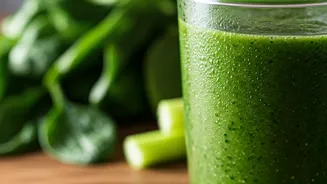Water: The Foundation
Water is fundamental for kidney health, serving as the primary solvent that facilitates numerous biological processes. It aids in removing waste products
and toxins from the body, critical for the kidneys' filtering function. Insufficient water intake can lead to dehydration, which impairs kidney function and elevates the risk of kidney stones and infections. Aiming for consistent hydration is vital. This means drinking enough water throughout the day, not just when you feel thirsty. Factors like physical activity, climate, and overall health can influence your daily water needs. Pay attention to your body's signals, and adjust your intake accordingly to support optimal kidney function and overall wellness. Ensure the water is clean and safe, preferably from a trusted source, to avoid any potential contaminants that could negatively impact your health.
Cranberry Juice: Preventing Infections
Cranberry juice is often hailed for its potential to prevent urinary tract infections (UTIs), a common issue that can impact kidney health. The proanthocyanidins (PACs) found in cranberries are believed to prevent bacteria, such as E. coli, from adhering to the urinary tract walls. This action can reduce the likelihood of infection, thereby reducing the stress placed on the kidneys. However, the effectiveness of cranberry juice can vary, and it is important to choose unsweetened varieties to avoid excessive sugar intake. While cranberry juice can be a useful tool, it should not replace medical treatment for established infections. If you experience UTI symptoms, consult a healthcare provider for proper diagnosis and care. Incorporating cranberry juice into your diet should be done in moderation, especially if you have pre-existing kidney conditions or are taking blood-thinning medications, as cranberries can potentially interact with these treatments.
Beetroot Juice: Detoxification Support
Beetroot juice is rich in antioxidants and nitrates, both of which can benefit kidney health. Nitrates can help improve blood flow, which is crucial for the kidneys' efficient functioning. The antioxidants present in beetroot can combat oxidative stress and protect the kidneys from damage. Beetroot also possesses properties that may aid in detoxifying the body, thus reducing the workload on the kidneys. However, due to its high oxalate content, people with a history of kidney stones should exercise caution when consuming beetroot juice. Monitoring your intake is advisable to prevent potential complications. Beetroot juice's vibrant color is a result of betalains, pigments with anti-inflammatory properties, making it a valuable addition to a kidney-friendly diet when consumed safely and in moderation. It is always wise to consult your doctor before making significant dietary changes, particularly if you have underlying health conditions.
Lemon Water: Promoting Alkalinity
Lemon water, a simple yet effective beverage, can contribute to kidney health in several ways. The citric acid found in lemons can help prevent the formation of calcium oxalate stones, the most common type of kidney stone. The acid binds to calcium in the urine, making it less likely to crystallize and form stones. Additionally, drinking lemon water encourages increased fluid intake, which aids in flushing out waste products and maintaining healthy kidney function. Making lemon water is straightforward: simply add the juice of half a lemon to a glass of water. It is a refreshing and easily accessible option for promoting kidney health. While beneficial, lemon water may cause dental erosion over time due to its acidity; therefore, it's advisable to drink it through a straw or rinse your mouth after consumption to safeguard your teeth. Incorporate lemon water into your routine alongside a balanced diet and regular exercise to support overall health.
Dandelion Tea: Gentle Diuretic
Dandelion tea has long been used as a natural diuretic, which can help increase urine production and assist in eliminating waste products from the kidneys. This tea is known for its mild diuretic properties, making it a gentle option for supporting kidney function. Dandelion also contains beneficial nutrients and antioxidants that can further contribute to kidney health. It can be a useful addition for those looking to support their kidneys, but it should be consumed in moderation and with awareness of its potential effects. It is particularly important to stay hydrated while drinking dandelion tea, as increased urine output can lead to fluid loss. Those with specific health conditions or who are taking medications, such as diuretics or blood thinners, should consult a healthcare provider before using dandelion tea. Always purchase dandelion tea from a trusted source to ensure its quality and safety.













